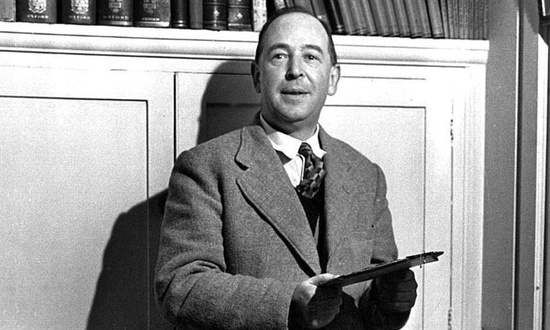Deus jamais nos prometeu que a vida cristã seria tranquila ou fácil. Na verdade, Ele promete o contrário: "Ora, todos quantos querem viver piedosamente em Cristo Jesus serão perseguidos." (2Tm 3.12). Não devemos nos surpreender quando enfrentamos grandes dificuldades (ver 1Pe 4.12).
Todos os salmos de lamento, o livro de Lamentações e muitas outras passagens das Escrituras revelam a importância do realismo e do pesar na vida cristã. Ao falarmos da alegria e da felicidade nāo devemos negar ou minimizar tais textos.
De fato, a visão de mundo verdadeiramente bíblica e a doutrina autêntica da alegria e da felicidade reconhecem e acolhem plenamente as realidades do sofrimento nesta era atual.
A felicidade descrita nas Escrituras é ainda mais rica por não envolver negação ou fingimento e por poder ser vivenciada em meio a grandes dificuldades. Os seguidores de Cristo não pregam o tipo de felicidade frágil que é construída sobre pensamentos fantasiosos. Ao contrário, a base para nossa felicidade permanece verdadeira—e às vezes se torna mais clara—no sofrimento.
O Regozijo Está Enraizado em Nosso Deus, Não em Nossas Circunstâncias
Regozijar-se sempre no Senhor (ver Fp 4.4) pode às vezes parecer irreal. Mas devemos lembrar que esta alegria não está centrada em uma circunstância passageira, mas em uma realidade constante—o próprio Deus e seu Filho, Jesus, que morreu por nós e ressuscitou.
Por um lado, podemos supor que as Escrituras não nos ordenam a nos regozijarmos com a condição de nosso país, com a trajetória de nossa cultura, com a atitude do nosso cônjuge, com as dificuldades de nossos filhos, com os conflitos em nossa igreja, com a perda de emprego ou com nossa saúde precária. Por outro lado, somos instruídos a dar "sempre graças por tudo a nosso Deus e Pai, em nome de nosso Senhor Jesus Cristo," (Ef 5.20). Da mesma forma, as Escrituras nos dizem "Em tudo, dai graças, porque esta é a vontade de Deus em Cristo Jesus para convosco." (1Ts 5.18).
Não creio que isto signifique que devemos nos regozijar com o mal, per se, pois Deus odeia o mal (Zc 8.17; Pv 6.16-19) e nos ordena que o odiemos (Sl 97.10; Pv 8.13; Rm 12.9). Acho que significa que necessitamos crer em Rm 8:28, que nos diz que Deus fará que todas as coisas cooperem para o nosso bem, incluindo as coisas más que nos acontecem.
Crer nisto nos liberta para agradecer a Deus em meio a circunstâncias difíceis e até mesmo do mal, sabendo que, em Sua soberana graça, Ele está realizando grandes e eternos desígnios em nós por meio destas coisas.
Somos instruídos a nos regozijarmos no Senhor e a considerar "motivo de toda alegria" quando passamos por provações (Tg 1.2). A escolha por nos regozijarmos, ao relembrarmo-nos das razões para sermos felizes e gratos em meio ao sofrimento, demonstra confiança em Deus. Caminhamos pela fé, crendo naquilo que Deus fez, está fazendo e fará para levar a um bom fim a tudo o que nos inquieta.
Esta reação exige fé de que Deus amorosamente supervisiona nossos desafios. Ver nossos sofrimentos como aleatórios ou ficarmos obcecados de que as más escolhas de outra pessoa causaram nossos sofrimentos, rouba de nós a alegria. Uma visão fraca, pequena ou defeituosa de Deus sempre envenena o poço de nosso contentamento.
Quanto mais crescermos em nossa compreensão dos atributos de Deus, mais felizes nos tornaremos.
Temos um Deus Soberano e Amoroso
Quanto mais profundo for nosso conhecimento do caráter de Deus, mais profundo será nosso reservatório de força, perspectiva e felicidade em tempos difíceis. Quem é esse Deus em quem devemos confiar? Como Ele realmente é?
Ao enfrentarmos o cancer de Nanci nos últimos dois anos, ela e eu passamos tempo meditando sobre os atributos de Deus, relendo livros como O Conhecimento do Santo de A. W. Tozer e O Conhecimento de Deus de J. I. Packer e Confiando em Deus de Jerry Bridges. Nossos corações são elevados em louvor ao contemplarmos Sua santidade, graça, justiça, misericórdia e cada faceta de Seu ser revelado a nós nas Escrituras.
A Escritura nos ensina que temos um Deus que nos ama e é soberano sobre o universo, incluindo todo o mal. Não podemos ficar e nos mantermos contentes, sem crer na soberania de um Deus amoroso. A beleza da cosmovisão cristã é que, embora sejamos encorajados a tomar a iniciativa e controle daquilo que está ao nosso alcance, também sabemos que a enorme parte da vida que não podemos controlar está sob o governo de Deus.
A Escritura nos diz: "No céu está o nosso Deus e tudo faz como lhe agrada." (Sl 115.3). Isso nos assegura que "O coração do homem traça o seu caminho, mas o SENHOR lhe dirige os passos." (Pv 16.9). E como Deus é eternamente sábio, bom e feliz, e nós não, estamos muito melhor com Ele no controle, e nāo nós.
A Gratidão é Essencial
Uma forma segura de elevar o nosso nível de felicidade em tempos de sofrimento é escolher ser grato.
Em qualquer circunstância, por mais difícil que seja, podemos dar graças a Deus e vivenciar sua alegria. Ef 5.18-20 diz: “enchei-vos do Espírito, falando entre vós com salmos, entoando e louvando de coração ao Senhor com hinos e cânticos espirituais, dando sempre graças por tudo a nosso Deus e Pai, em nome de nosso Senhor Jesus Cristo,". Ser controlado pelo Espírito é indissociável de ser grato em tudo.
Quando Nanci e eu tivemos de cancelar uma viagem pela qual aguardávamos ansiosamente, começamos a ponderar todas as coisas boas que poderíamos fazer com o tempo que agora tínhamos. Depois começamos a fazer essas coisas boas e ficamos entusiasmados com elas. Em vez de nos agarrarmos à infelicidade por algo que perdemos, encontramos felicidade naquilo que ganhamos.
Quer tenhamos motivos para celebrar ou para lamentar, jamais há um tempo para não expressarmos nossa gratidão a Deus. O Sl 140.13 declara: "Assim, os justos renderão graças ao teu nome".
Embora possa parecer difícil "tornarmo-nos felizes", não é difícil optar por ser grato, o que por sua vez sempre suscita felicidade. Por mais difíceis que sejam nossas circunstâncias, a felicidade que a ação de graças gera está sempre ao nosso alcance.
Nosso Sofrimento Cessará
Mesmo que o pior sofrimento de nossas vidas ainda esteja por vir, nosso amoroso Deus nos assegura que será apenas por um curto período de tempo. No entanto, Ele promete muito mais—uma recompensa futura pelos nossos sofrimentos presentes:
Os sofrimentos do tempo presente não podem ser comparados com a glória a ser revelada em nós. (Rm 8.18)
Porque a nossa leve e momentânea tribulação produz para nós eterno peso de glória, acima de toda comparação. (2Co 4.17)
À luz desta glória eterna produzida por nossa momentânea tribulaçāo, Paulo apresenta as seguintes palavras de perspectiva eterna: "não atentando nós nas coisas que se vêem, mas nas que se não vêem; porque as que se vêem são temporais, e as que se não vêem são eternas." (2Co 4.18). Este versículo sempre clareia minha mente, e é por isso que chamei nossa organização de Ministérios da Perspectiva Eterna
Que maravilha recebermos a promessa não só de que nossos sofrimentos presentes vão ter fim, mas também de que mesmo agora eles têm um propósito oculto que perdurará para sempre após esta vida! Quanto mais fixamos nossos olhos naquilo que presentemente não vemos, mais podemos sentir tranquilidade, conforto e a crescente felicidade que inevitavelmente trazem. Foi por isso que o evangelista escocês Duncan Matheson (1824-1869) orou: "Senhor, imprima a eternidade nos meus olhos".
Um dia normal como pessoas ressuretas na Nova Terra será bem melhor do que o melhor dia que já vivemos aqui. E um dia veremos o nosso pior dia na Terra sob a Maldição como não tendo sido desperdiçado, mas como fazendo uma diferença positiva e eterna.
God never guarantees that the Christian life will be smooth or easy. In fact, he promises the opposite: “All who desire to live godly in Christ Jesus will suffer persecution” (2 Timothy 3:12, NKJV). We’re not to be surprised when we face great difficulties (see 1 Peter 4:12).
All the psalms of lament, the book of Lamentations, and many other Scripture passages reveal the importance of realism and sorrow in the Christian life. No treatment of joy and happiness should deny or minimize such texts.
Indeed, a truly biblical worldview and an authentic doctrine of joy and happiness fully recognize and embrace the realities of suffering in this present age.
The happiness described in Scripture is all the richer because it doesn’t involve denial or pretense and can be experienced amid severe difficulty. Christ-followers don’t preach the flimsy kind of happiness that’s built on wishful thinking. Instead, our basis for happiness remains true—and sometimes becomes clearer—in suffering.
Rejoicing Is Rooted in Our God, Not Our Circumstances
Rejoicing always in the Lord (see Philippians 4:4) may seem unrealistic at times. But we must remember that this rejoicing is centered not in a passing circumstance but in a constant reality—God Himself, and His Son, Jesus, who died for us and rose again.
On the one hand, we might suppose that Scripture doesn’t command us to rejoice in our nation’s condition, our culture’s trajectory, our spouse’s attitude, our child’s struggle, our church’s conflicts, our job loss, or our poor health. On the other hand, we’re told to “always [give] thanks to God the Father for everything, in the name of our Lord Jesus Christ” (Ephesians 5:20, NIV). Likewise, Scripture tells us to “give thanks in all circumstances; for this is God’s will for you in Christ Jesus” (1 Thessalonians 5:18, NIV).
I don’t think this means that we are to rejoice in evil, per se, since God hates evil (Zechariah 8:17; Proverbs 6:16-19) and commands us to hate it (Psalm 97:10; Proverbs 8:13; Romans 12:9). I do think it means that we should believe Romans 8:28, which tells us God will work all things together for our good, including evil things that happen to us.
Believing this frees us to thank God in the middle of difficult and even evil circumstances, knowing that in His sovereign grace, He is accomplishing great, eternal purposes in us through these things.
We’re told to rejoice in the Lord and to “consider it all joy” when we face hardship (James 1:2, NASB). Choosing to rejoice, by rehearsing reasons to be happy and grateful while suffering, affirms trust in God. We walk by faith, believing in what God has done, is doing, and will do to bring a good end to all that troubles us.
This response requires faith that God lovingly superintends our challenges. Viewing our sufferings as random or obsessing over someone else’s bad choices that caused our sufferings robs us of happiness. A weak, small, or faulty view of God always poisons the well of our contentment.
The more we grow in our understanding of God’s attributes, the happier we become.
We Have a Sovereign and Loving God
The deeper our knowledge of God’s character, the deeper our reservoir of strength, perspective, and happiness in hard times. Who is this God we are to trust? What is He really like?
As we have dealt with her cancer over the past two years, Nanci and I have spent time meditating on the attributes of God, rereading and listening to audiobooks such as The Knowledge of the Holy by A. W. Tozer and Knowing God by J. I. Packer and Trusting God by Jerry Bridges. Our hearts are lifted in praise as we contemplate His holiness, grace, justice, mercy, and every facet of His being revealed to us in Scripture.
Scripture teaches that we have a God who loves us and is sovereign over the universe, including all evil. We can’t be happy, and remain happy, without believing in the sovereignty of a loving God. The beauty of the Christian worldview is that while we’re encouraged to take initiative and control what’s within our power, we also know that the enormous part of life we can’t control is under God’s governance.
Scripture tells us, “Our God is in the heavens; he does all that he pleases” (Psalm 115:3). It assures us, “The heart of man plans his way, but the Lord establishes his steps” (Proverbs 16:9). And since God is eternally wise and good and happy, and we’re not, we’re far better off with Him, not us, in control.
Gratitude Is Central
One surefire way to raise our level of happiness in times of suffering is choosing to be thankful.
In every circumstance, no matter how difficult, we can give thanks to God and experience his joy. Ephesians 5:18-20 says, “Be filled with the Spirit, addressing one another in psalms and hymns and spiritual songs, singing and making melody to the Lord with your heart, giving thanks always and for everything to God the Father in the name of our Lord Jesus Christ.” Being Spirit controlled is inseparable from giving thanks in everything.
When Nanci and I had to cancel a trip we were really looking forward to, we began to contemplate all the good things that we could do with the time we now had. Then we started doing those good things and got excited about them. Instead of clinging to unhappiness for something we lost, we found happiness in something we gained.
Whether we find ourselves having reason to celebrate or to mourn, there’s never a time not to express our gratitude to God. Psalm 140:13 declares, “Surely the righteous shall give thanks to your name.”
While it may seem hard to “make ourselves happy,” it’s not hard to choose to give thanks, which in turn always kindles happiness. No matter how difficult our circumstances, the happiness thanksgiving generates is always within our reach.
Our Suffering Will End
Even if the worst suffering of our lives still lies ahead of us, our loving God assures us it will be for only a short time. But He promises far more—a future payoff for our present sufferings:
Our present sufferings are not worth comparing with the glory that will be revealed in us. (Romans 8:18, NIV)
Our light and momentary troubles are achieving for us an eternal glory that far outweighs them all. (2 Corinthians 4:17, NIV)
In light of that eternal glory being achieved for us by our momentary troubles, Paul offers the following words of eternal perspective: “We fix our eyes not on what is seen, but on what is unseen, since what is seen is temporary, but what is unseen is eternal” (2 Corinthians 4:18, NIV). This verse has always cleared my head, and that’s why I named our organization Eternal Perspective Ministries.
How wonderful to be promised not only that our present sufferings will end but also that even now they have a hidden purpose that will forever outlast this life! The more we fix our eyes on what’s presently unseen, the more we can experience reassurance and comfort and the increase in happiness they inevitably bring. That’s why Scottish evangelist Duncan Matheson (1824–1869) prayed, “Lord, stamp eternity upon my eyeballs.”
A normal day as resurrected people on the New Earth will be far better than the best day we’ve ever experienced here. And we will one day see our worst day on Earth under the Curse as not having been wasted but as making a positive and eternal difference.
This article is excerpted from Randy’s book Does God Want Us to Be Happy? It offers a collection of short, easy readings on one of life’s biggest questions: in a world full of brokenness, is happiness a worthy pursuit for Christians? This book answers the question with a different approach and contains some new material. It's perfect for those who would like to consider the central question in Happiness in a shorter form.
Photo by Torsten Dederichs on Unsplash




